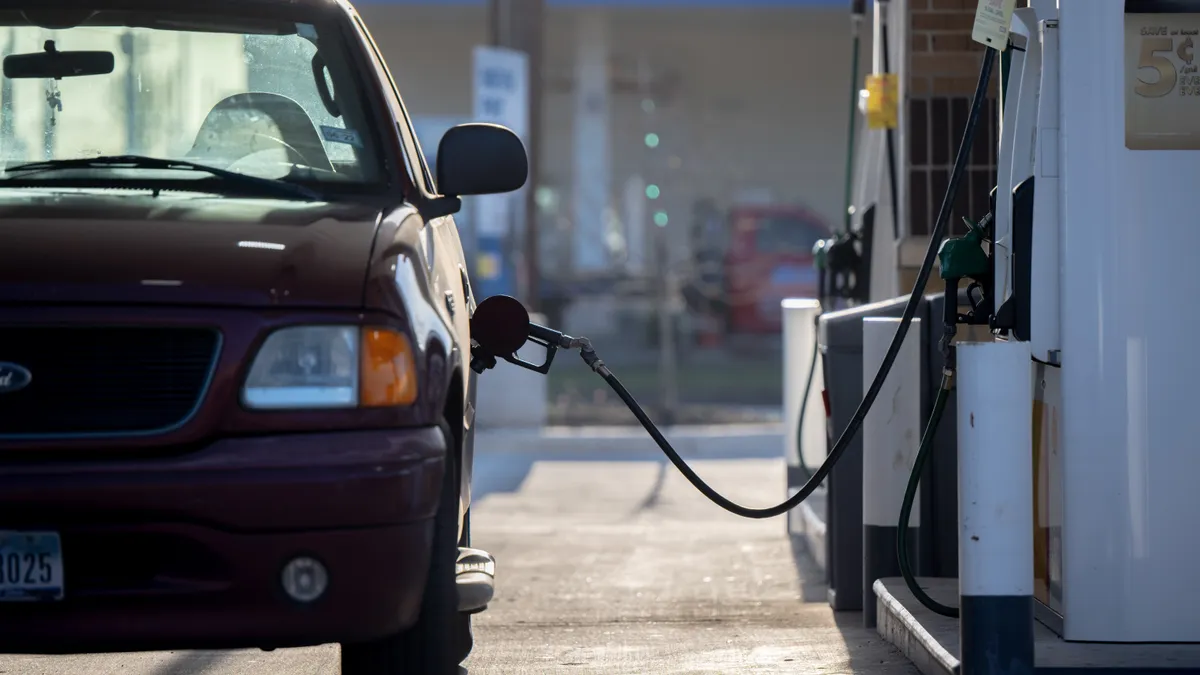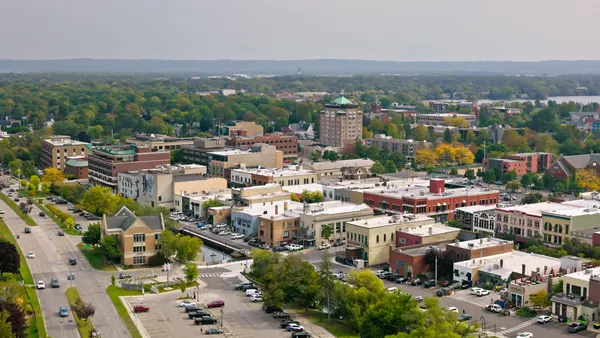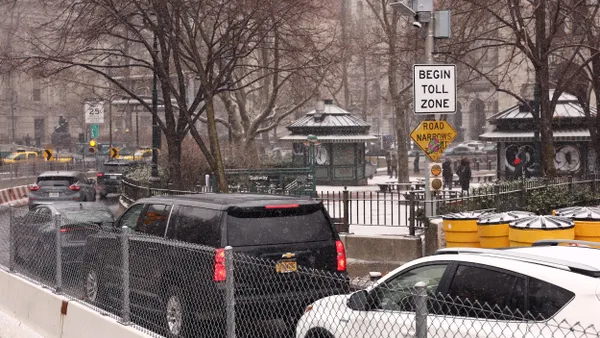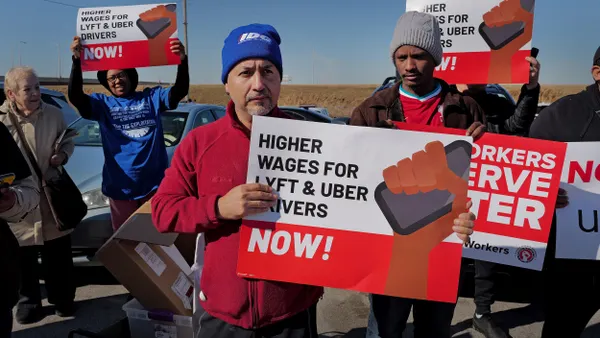Dive Brief:
- To help ease the impact of high fuel prices, Chicago will give $150 prepaid gas cards to 50,000 eligible city residents via a lottery system. Household income limits are capped at approximately $91,000 for a single individual and $130,000 for a family of four.
- Up to 100,000 prepaid transit cards, worth $50 each, will also be distributed by the city, with 75% of them earmarked for low-income neighborhoods. "By subsidizing the cost of gas and transit, this program will enable participants to save their resources for other critical expenses," Mayor Lori Lightfoot said in a statement.
- Chicago's actions are among those cities, states, and Congress have proposed to provide relief, ranging from a temporary suspension of fuel taxes to outright cash distributions. At the same time, the Biden administration has authorized a "historic release" of oil from the Strategic Petroleum Reserve.
Dive Insight:
Although the national average for a gallon of gasoline has declined to $4.17 as of this morning, from a high of $4.33 on March 11, motorists are paying $1.32 a gallon more today than they did one year ago, a 45% jump.
Both Maryland and Georgia have already suspended state gasoline taxes, saving drivers 36.1 cents per gallon for 30 days in Maryland and 29.1 cents per gallon in Georgia until the end of May. Connecticut enacted emergency legislation to pause the collection of the state's excise tax on gasoline from April 1 to June 30.
Alabama, Alaska, Florida, Illinois, Minnesota, Mississippi, Missouri, Ohio, Pennsylvania, Rhode Island, South Carolina, Tennessee, Virginia, and West Virginia are considering similar actions to reduce or suspend fuel taxes.
In California, where gas prices now average $5.84 a gallon, Gov. Gavin Newsom has proposed a $9 billion plan to send $400 debit cards to each registered vehicle owner, limited to two cards per person. Delaware, Maine and New Jersey are weighing rebates as well.
Legislation has been introduced in the U.S. House of Representatives for monthly rebates through the end of this year for each month the national average price of gas exceeds $4 and in the Senate to suspend the federal gas tax through December. But forgoing that revenue, which flows directly to the Highway Trust Fund, could reduce income by $20 billion over 10 months, according to the Congressional Research Service. The Highway Trust Fund supports capital expenses for both roadways and mass transit.
The Biden administration's response to high gas prices so far has included the release of 180 million barrels of oil from the Strategic Petroleum Reserve over six months. That's on top of a 50-million-barrel release announced last November. The White House is considering but has not yet endorsed a federal gas tax holiday.
While consumers may enjoy lower gas prices from fuel tax suspensions, some see unintended effects. The nonpartisan Tax Foundation believes that reducing or eliminating the federal gas tax would exacerbate inflation and induce greater demand for gasoline.
The California governor's plan has been criticized as inequitable and contrary to the state's climate goals: The owner of two luxury cars would get $800, while a non-vehicle owner who relies on a bicycle for transportation would receive nothing. However, the governor's proposal also includes $750 million in grants to transit agencies to enable them to offer up to three months of free service.
The Chicago Tribune criticized the mayor's plan in an editorial, seeing it as a grab for votes and asking, "Why give away free gas for driving around the city but not free heat at home?" In response to the $50 public transit cards, the newspaper's editorial board noted that "clean, safe, fast" and reliable service would bring riders back to the Chicago Transit Authority.












